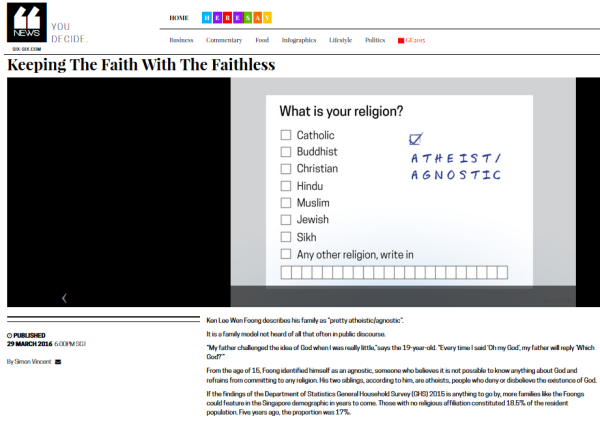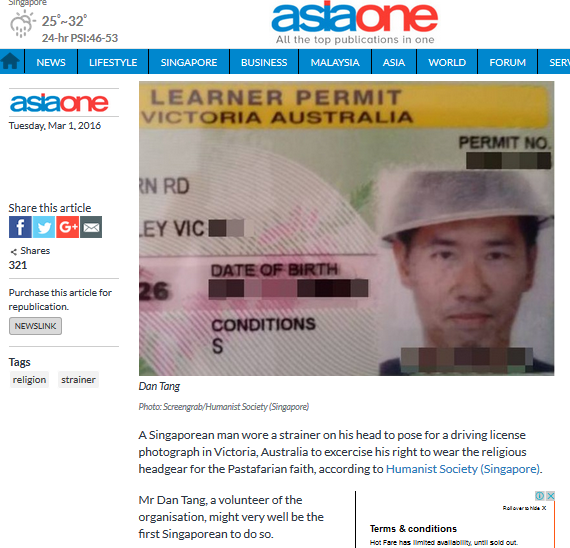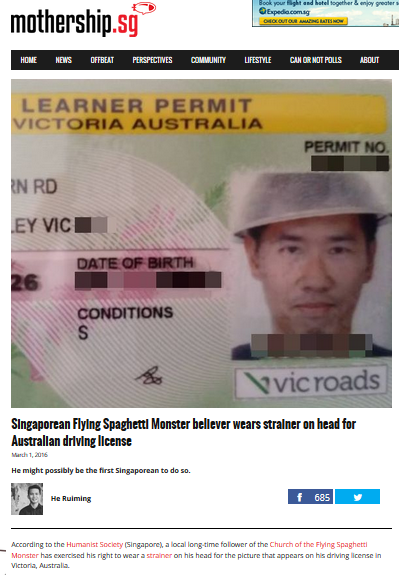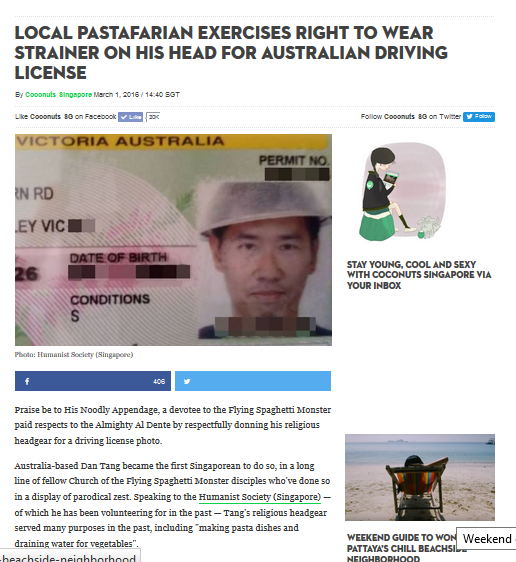SIX-SIX News, an independent media outlet in Singapore, wrote a feature about the rising number of non-religious Singapore residents. They interviewed one of our members, Pearl Lin, as well as Leftwrite Center member Mohamed Imran Mohamed Taib with regards to relations between the religious and non-religious. Read more here:
http://www.six-six.com/article/keeping-the-faith-with-the-faithless-atheistic-agnostic
An excerpt from the article:
The choice between identifying as an atheist and an agnostic can be a fraught one. Pearl Lin says that for a long time she was on the fence, but counts herself as an agnostic. She considers herself first and foremost, though, as a humanist.
“It’s basically believing in the basic goodness of people,” she explains. The 22-year-old student is an executive committee member of the Humanist Society (Singapore). The organisation has been around since 2010 and currently has around 150 members who are atheists, agnostics, freethinkers and humanists.
The ‘humanist’ tag is more palatable than the ‘atheist’ one, it would seem. “It sounds a little less aggressive. If you say you are an atheist, people have this preconceived notion of what an atheist is. People just think you are completely against religion and so I think they are more comfortable with our identifying as humanists because a lot of people are not sure what it is.
“And from there you can kind of educate them on the meaning and tell them that basically we’re just a bunch of people who believe in reason and science, and also that we do not need organised religion to tell us what is right or wrong.”









